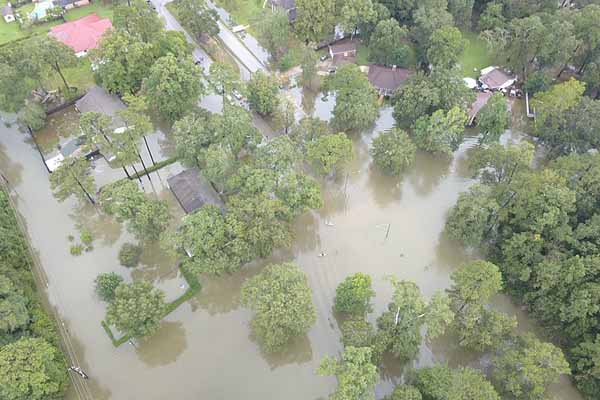
Physicians in Southeast Texas should be on the lookout for potential respiratory and intestinal illnesses in the coming days – a result of air and water pollution caused by Tropical Storm Imelda last week.
About a dozen chemical plants and refineries reported unauthorized releases of nearly 100,000 pounds of toxic air pollutants Wednesday through Friday, the Houston Chronicle reported.
Most of the toxic releases, including cancer-causing 1.3 butadiene, benzene, and ethylene oxide, were in Harris and Jefferson counties, the newspaper said.
In addition, E. coli and other contaminants might have seeped into household wells in the 13 counties affected by the storm, the Associated Press reported.
Imelda dumped as much as 43 inches of rain in parts of Southeast Texas, including Houston and Beaumont. As of Sunday, five people had died as a result of the storm, and tens of thousands of homes and businesses from Houston to the Louisiana border were damaged, reports say.
Major flooding events, such as Imelda and Hurricane Harvey in 2017, can have serious effects on public and mental health.
For example, immediately after Harvey, physicians saw an increase in gastrointestinal illnesses, respiratory illnesses, and skin infections, Umair Shah, MD, executive director at Harris County Public Health, told Texas Medicine a year after the storm.
Anxiety and depression also can increase as people struggle with rebuilding homes and businesses, or have to relocate altogether. However, mental health problems often take longer to appear.
“One of the things we’ve learned from working with people in other disasters is that the mental health impacts generally take six to 18 months to fully show up,” Elena Marks, president and CEO of the Episcopal Health Foundation, told Texas Medicine after Harvey. “People sort of hold it together for a while [after the storm] — and then they don’t.”
For more information and tools to help treat patients affected by Imelda – or if you or your practice have been affected– look to the Texas Medical Association’s Disaster Preparedness and Response Resource Center.
And be sure to check out TMA’s Disaster Planning Toolkit: Preparing for the Unexpected. The handbook, which offers CME credit for physicians, provides tips on how to train your staff for many common emergencies in Texas and help with developing strategies for resuming functions after an emergency occurs.
Photo: Creative Commons